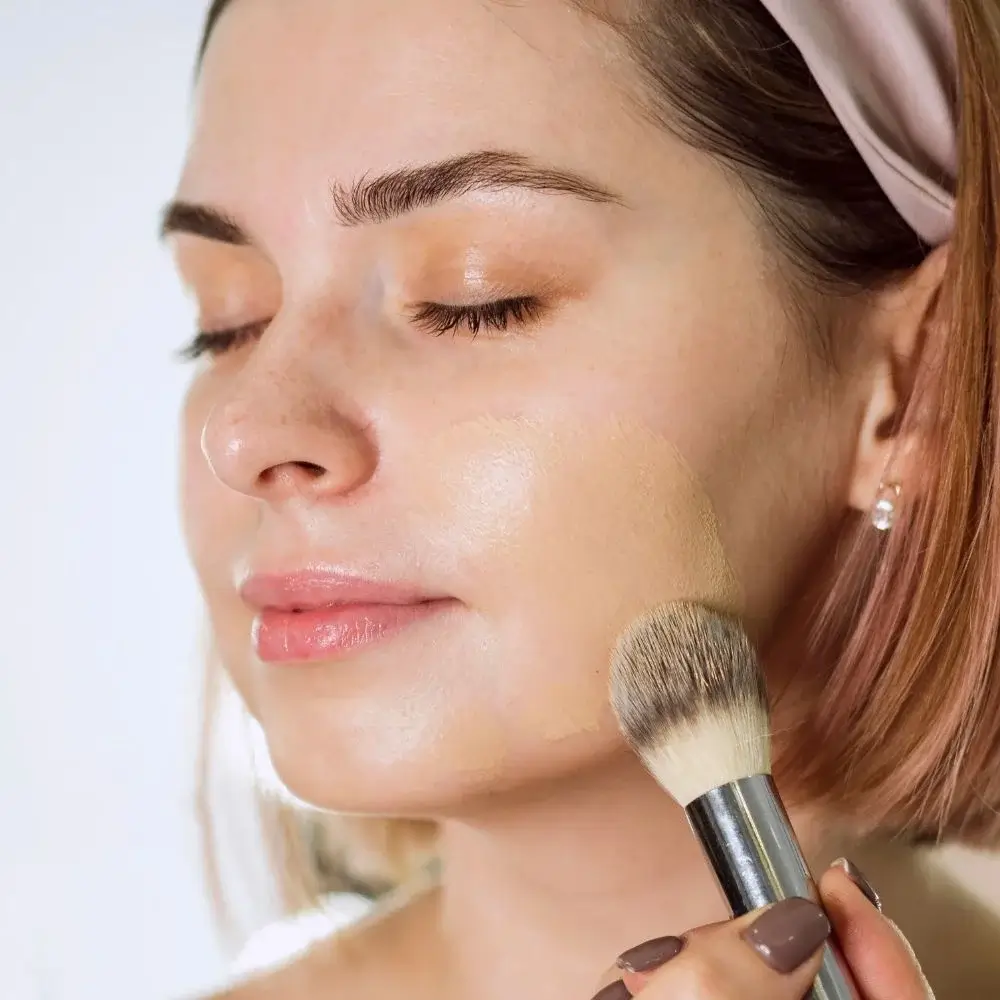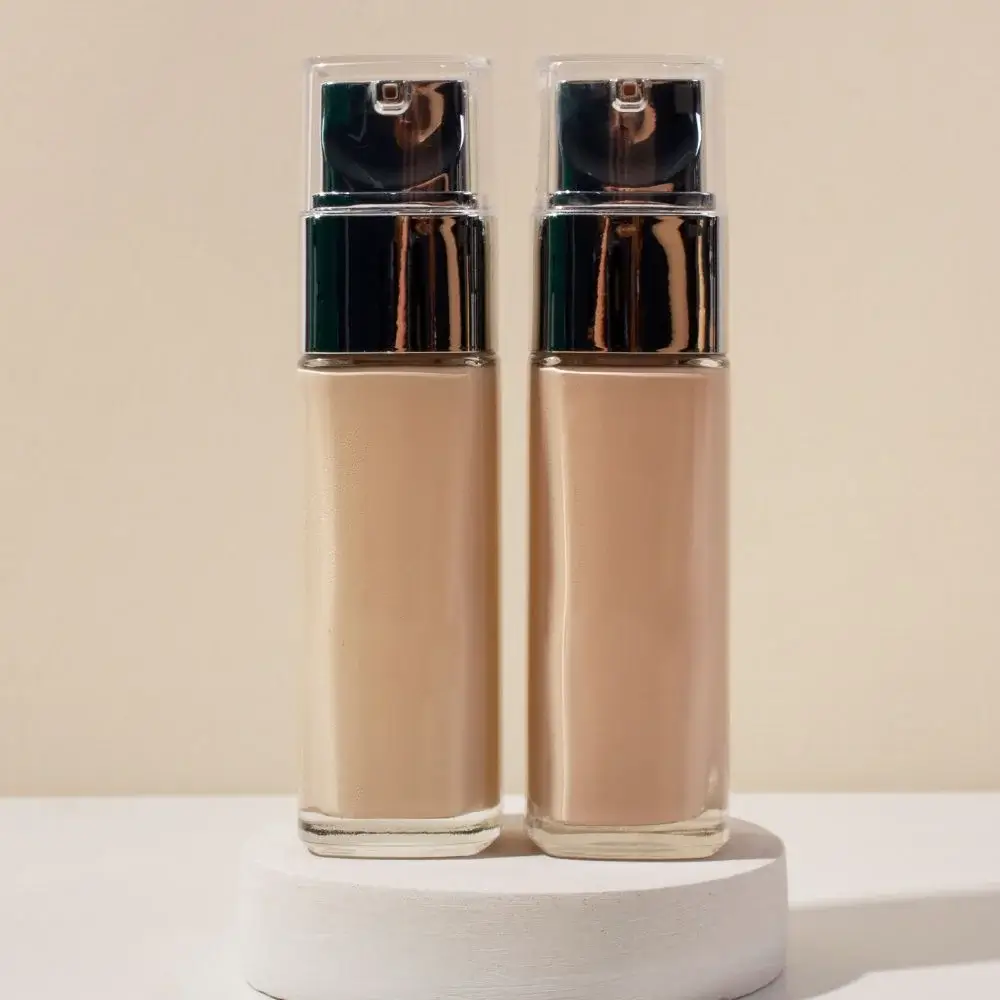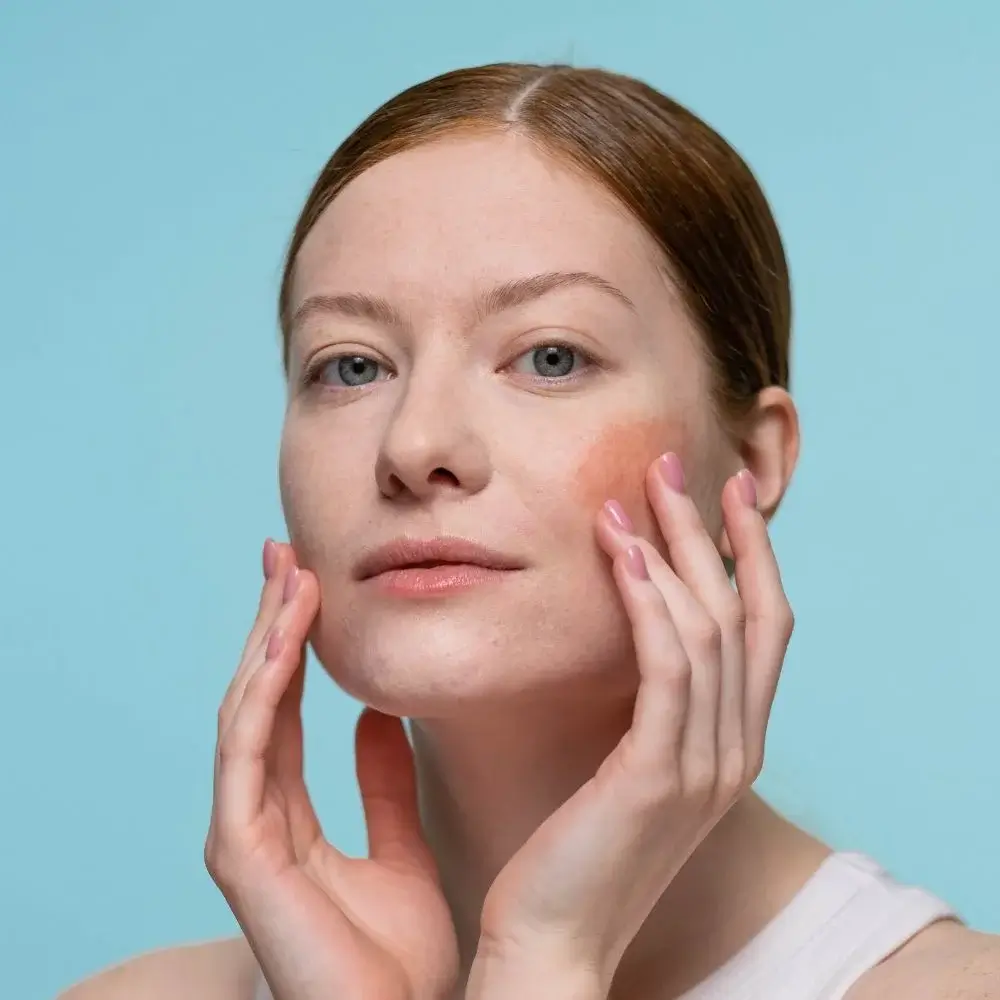Acne scars can make you feel self-conscious and embarrassed, especially regarding fashion. But don't worry, there's hope! Foundation is a powerful tool for concealing scars and making you feel confident and beautiful. In this blog post, I'll share with you how the foundation can help conceal acne scars and provide tips to make your foundation application successful.
Choose Products That Suit Your Skin Type
The first step in concealing acne scars is to choose products that suit your skin type. Whether you have oily or dry skin, you must invest in a foundation that matches your skin tone and provides adequate coverage. Your goal is to avoid causing your skin to look cakey or overly greasy. For oily skin, look for water-based foundations; meanwhile, choose a formula with a hydrating element for dry skin.
Apply Foundation in Thin, Even Layers
Now that you've chosen the proper foundation, it's time to apply it to your face. Start with a thin layer and work in even, smooth strokes. You don’t want your foundation to be too thick because it will smudge and start looking cakey, negating the point of using foundation in the first place. Instead, apply multiple thin layers, allowing each to dry before adding another one.
Focus on Modifying Your Skincare Routine
Foundation can cover up acne scars, but it's not a permanent solution. You must focus primarily on your skincare routine to tackle your acne scars over time. Doing this will gradually reduce the scars' visibility, making the foundation application more straightforward. Always consult a dermatologist before changing your skincare routine, especially if you have sensitive skin.
Blend the Foundation Properly
Once you’ve applied your foundation, it’s essential to blend it properly. You can do this by using a brush or a damp beauty sponge. My preferred way is to use a sponge. It ensures the foundation is blended into the skin, leaving no harsh edges behind. You could always use a round, flat brush if you want, but that’d require more muscle power, and you wouldn't get the same consistency as a sponge.
Set your foundation with Powder
Now that your foundation is blended, it's time to set it. Depending on your preference, you can use loose or compact powder for this purpose. If you want to brush the powder lightly over your face, ensure you don't smudge the makeup, then let it sit for a bit. Setting powder also helps the foundation last longer, making you look fresh throughout the day.
Foundation can be a game-changer when it comes to concealing acne scars and improving your confidence when it comes to fashion. By choosing the right products and practicing proper application techniques, you can flaunt your fashion sense without worrying about your acne scars. Remember to modify your skincare routine, invest in a high-quality tool, and use powder to finish the job. With these tips, you can conceal your acne scars like a pro!
Acne scars can be a frustrating part of anyone's beauty routine. But fear not because we've researched for you and found the best foundation to cover those pesky scars. Whether you're in need of full coverage or a more natural look, we've got you covered. Our top pick will leave your skin looking flawless and feeling confident. So don't waste any more time trying to find the perfect foundation - simply follow the link and discover your new favorite best foundation to cover acne scars!
What are the key features when choosing a foundation for acne-prone skin?
Selecting the proper foundation for acne-prone skin involves a few essential considerations. First and foremost, prioritize foundations labeled as non-comedogenic, as they are specially formulated not to clog pores. Look for oil-free or water-based options to prevent excess oil buildup, which can exacerbate acne. Foundations infused with salicylic acid or hyaluronic acid can offer the dual benefit of providing coverage while addressing acne concerns. For those struggling with shine, matte finishes help control excess oil production. Alternatively, mineral foundations are often gentle on sensitive skin.

What is the role of primer in achieving smooth coverage for acne scars?
Primer is crucial in achieving a flawless finish, especially with acne scars. It serves as a preparatory step by creating a smooth, even canvas for your foundation to adhere to. This not only ensures a smoother application but also extends the longevity of your makeup. Opt for silicone-based primers, particularly scar coverage, as they fill in uneven textures, including scars. Creating a barrier between your skin and makeup helps prevent the foundation from settling into scars.

What are the best foundation shades for different skin tones when covering scars?
Finding the perfect foundation shade is pivotal in achieving a seamless, natural look while covering scars. Skin tones vary widely, and selecting the right shade involves considering undertones as well. For individuals with fair skin tones, cooler undertones such as pink or beige work best. Those with medium skin tones should lean towards neutral or warm undertones, such as peach or golden shades. Darker skin tones tend to be enhanced by foundations with warm undertones, like caramel or red hues. Applying a shade review on your jawline is wise to assess the match with your skin's undertone. Sometimes, blending two shades may be necessary for a harmonious blend over scars.

How can I make my foundation last all day to cover acne scars?
Ensuring that your foundation remains intact throughout the day, effectively concealing acne scars, involves a multi-step approach. Firstly, begin with a clean and well-moisturized face, as a hydrated base allows makeup to adhere better. Apply a suitable primer to create a smooth surface, filling in any irregularities, including scars. Incorporate a makeup setting spray before and after applying foundation to lock in your look. Opt for long-wear or transfer-resistant foundation formulas for extended wear. Finish gently dusting a translucent setting powder over the foundation to enhance longevity.

How do I select the right undertone for foundation when dealing with scars?
Choosing the correct undertone in your foundation is essential to conceal scars effectively. Skin undertones typically fall into three categories: warm, cool, or neutral. A quick way to determine your undertone is by examining the veins on your wrist: blue veins suggest a cool undertone, green veins indicate a warm undertone and a mix of both points towards neutrality. It is crucial to select a foundation shade that matches your skin tone and its undertone when dealing with acne scars. A foundation with a similar undertone to your skin will seamlessly blend, preventing scars from appearing ashy or overly pronounced.
Should I consider non-comedogenic foundations for acne-prone skin with scars?
Yes, opting for non-comedogenic foundations is highly advisable when dealing with acne-prone skin, especially if you have scars to conceal. These foundations are specifically formulated to avoid clogging pores, reducing the risk of further breakouts. Look for "non-comedogenic" or "oil-free" products, as they are typically lightweight, breathable, and designed to prevent pore blockages that can exacerbate existing skin issues. By choosing non-comedogenic foundations, you can achieve coverage for scars while prioritizing your skin's overall health and clarity. Maintaining a thorough cleansing routine at the end of the day is essential to remove makeup and maintain clear, healthy skin.







